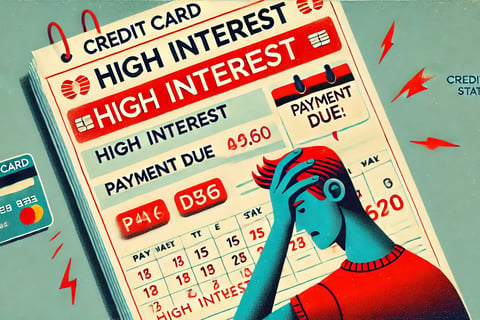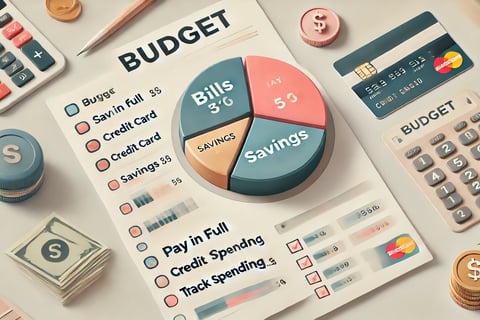What Should I Use a Credit Card For? Let’s Break It Down Together!
If you’ve ever wondered, What should I use a credit card for?, you’re not alone. Credit cards are versatile financial tools, but understanding when and how to use them wisely is key to avoiding pitfalls and making the most of their benefits. Let’s dive into the best ways to use your credit card, the situations to avoid, and some helpful tips for staying on track.
Sarkis Gevorkyan
11/29/20243 min read
My post content
What Should I Use a Credit Card For? The Best Scenarios
Credit cards shine in many situations, offering convenience, rewards, and protections. Here are some smart ways to use your credit card:
1. Everyday Expenses (If You Can Pay in Full)
Using your credit card for regular purchases like groceries, gas, or streaming subscriptions is a great way to rack up rewards and build your credit score. Just make sure to pay off the balance in full each month to avoid interest.
2. Big Purchases That Offer Rewards
Planning to buy a new appliance, electronics, or furniture? Use your credit card to earn cashback or travel points. Many cards also offer purchase protection, which can be a lifesaver if something goes wrong.
3. Booking Travel
Credit cards often provide perks for travel, like free baggage, airport lounge access, or trip insurance. Plus, fraud protection ensures your money is safe if your card details are compromised.
4. Online Shopping
A credit card is a safer option for online purchases compared to debit cards, thanks to enhanced fraud protections and the ability to dispute charges.
5. Emergencies
While it’s better to have an emergency fund, a credit card can act as a backup for unexpected expenses, such as car repairs or medical bills.
6. Building or Improving Your Credit Score
If you’re just starting your credit journey or need to improve your score, responsibly using a credit card is one of the easiest ways to build your credit history. Stick to small, manageable purchases and pay your balance in full.


What NOT to Use a Credit Card For
While credit cards are useful, there are some situations where you should think twice:
1. Everyday Purchases You Can’t Afford
It’s easy to overspend with a credit card, especially if you don’t have the funds to pay off the balance. This can lead to high-interest debt.
2. Cash Advances
Most credit cards allow you to withdraw cash, but the fees and interest rates are steep. Avoid this unless it’s a dire emergency.
3. Impulse Buys
Using a credit card for impulsive purchases can lead to financial regret, especially if the purchase wasn’t planned or necessary.
4. Paying for Other Debt
Using one credit card to pay off another or to cover loans is a risky cycle that can spiral into unmanageable debt.
5. Business Expenses
While using a credit card for business expenses might seem convenient, it’s better to use a business-specific credit card to keep personal and professional finances separate.


How to Use Credit Cards Wisely
If you’re asking, What should I use a credit card for?, the answer isn’t just about what to buy but how you manage your card overall. Here are some tips to maximize benefits and avoid trouble:
- Pay Off Your Balance Every Month
Always aim to pay off your full statement balance to avoid interest charges and keep your credit utilization low.
- Stick to Your Budget
Treat your credit card like cash. Only charge what you can afford to pay off at the end of the month.
- Choose the Right Card for You
Select a card that fits your lifestyle. If you travel frequently, go for a card with travel perks. If you prefer cashback, pick a card with strong rewards in that category.
- Monitor Your Spending
Use budgeting apps or alerts to track your purchases and stay within your limits.
- Know Your Card’s Terms
Understanding your card’s rewards, fees, and interest rates helps you make informed decisions.
Conclusion: What Should I Use a Credit Card For?
Credit cards are powerful tools when used wisely. They’re great for everyday expenses, earning rewards, and building your credit score. However, it’s crucial to avoid overspending or using them for unnecessary debt. By sticking to responsible habits and knowing when to use your card, you can enjoy all the perks without the stress.
Have any tips for using credit cards wisely? Share them in the comments! Let’s help each other make the most of our financial tools.
